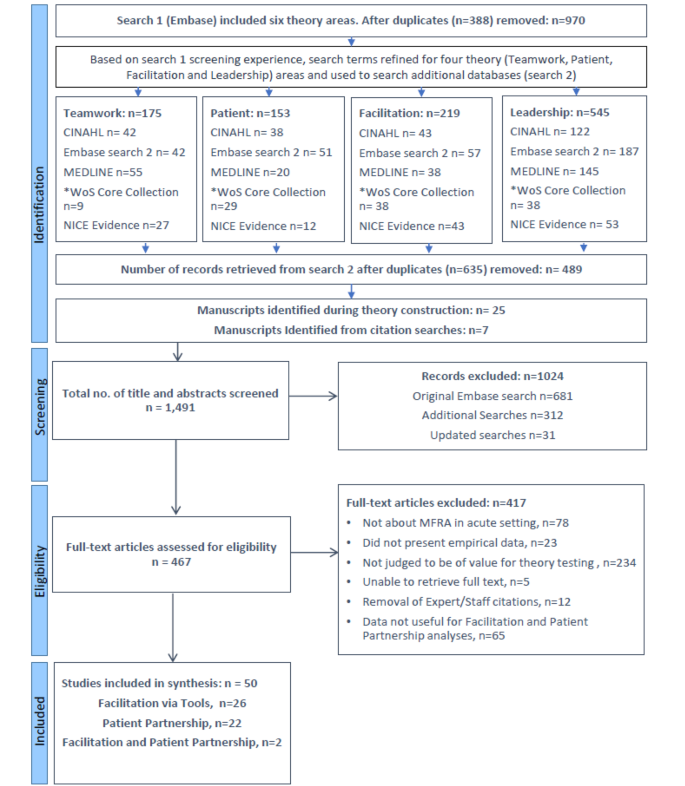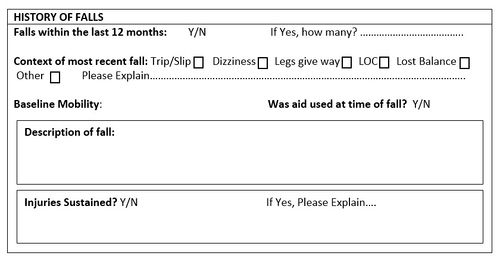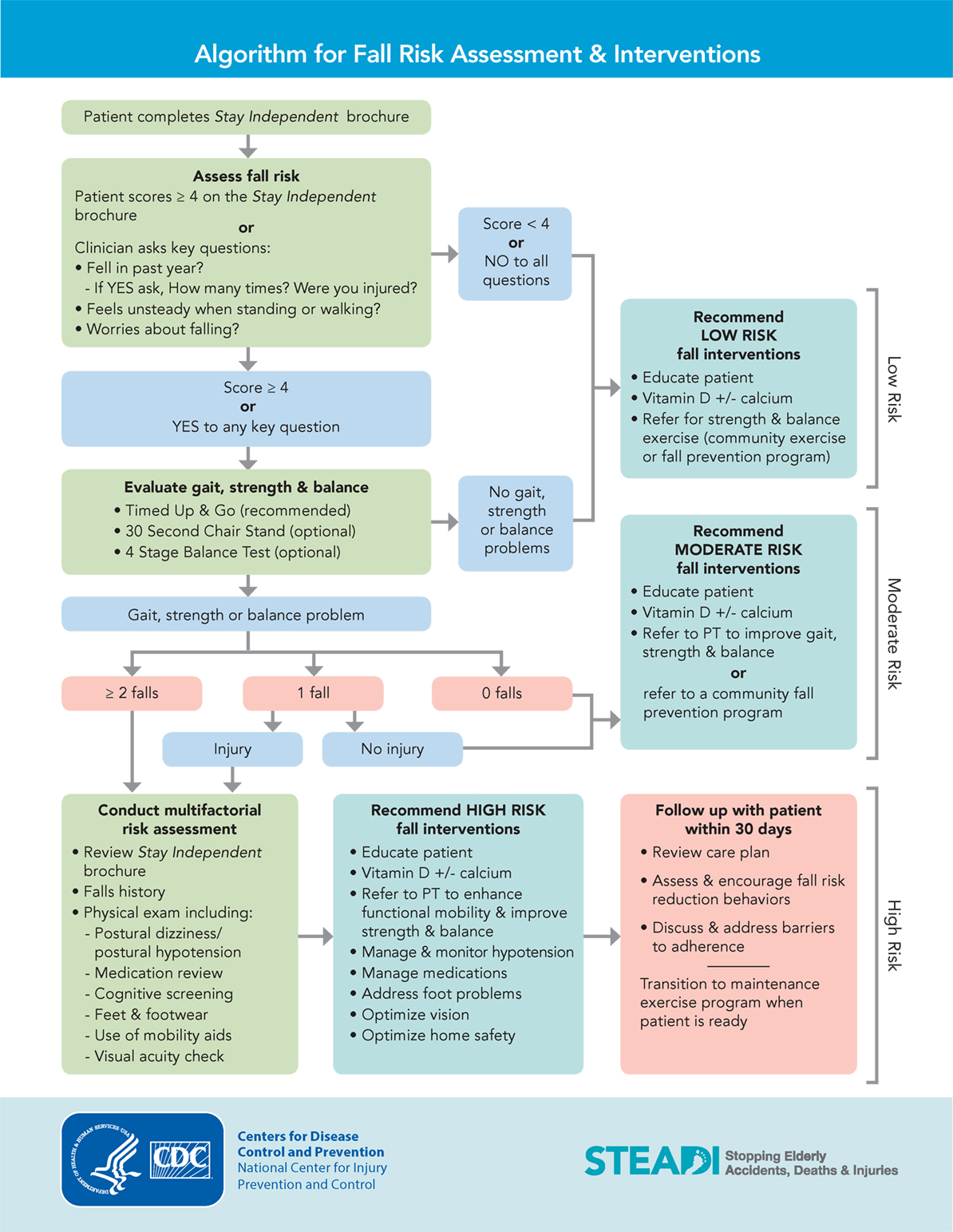Fascination About Dementia Fall Risk
Fascination About Dementia Fall Risk
Blog Article
Dementia Fall Risk Things To Know Before You Get This
Table of ContentsThe Only Guide for Dementia Fall RiskDementia Fall Risk Fundamentals ExplainedThe 25-Second Trick For Dementia Fall RiskTop Guidelines Of Dementia Fall RiskRumored Buzz on Dementia Fall Risk
Guarantee that there is a designated area in your clinical charting system where team can document/reference ratings and record relevant notes connected to drop avoidance. The Johns Hopkins Fall Risk Assessment Device is one of lots of tools your staff can use to aid stop negative medical events.Patient drops in health centers prevail and devastating damaging occasions that persist despite years of effort to decrease them. Improving interaction throughout the examining nurse, care group, client, and client's most involved loved ones might strengthen loss prevention initiatives. A group at Brigham and Women's Health center in Boston, Massachusetts, sought to create a standardized loss prevention program that focused around enhanced communication and patient and household interaction.

The innovation team stressed that effective application depends upon client and staff buy-in, assimilation of the program right into existing process, and fidelity to program processes. The group kept in mind that they are coming to grips with how to ensure connection in program application during durations of situation. During the COVID-19 pandemic, for instance, a rise in inpatient drops was connected with limitations in person involvement together with restrictions on visitation.
Indicators on Dementia Fall Risk You Should Know
These occurrences are normally considered avoidable. To implement the intervention, companies need the following: Access to Autumn TIPS sources Loss suggestions training and re-training for nursing and non-nursing staff, consisting of new nurses Nursing operations that permit individual and household involvement to conduct the drops analysis, guarantee usage of the prevention plan, and conduct patient-level audits.
The results can be very harmful, usually accelerating individual decrease and causing longer healthcare facility keeps. One study estimated keeps raised an additional 12 in-patient days after an individual loss. The Fall TIPS Program is based upon interesting patients and their family/loved ones across 3 major processes: assessment, personalized preventative treatments, and bookkeeping to make certain that patients are taken part in the three-step autumn avoidance procedure.
The person analysis is based upon the Morse Fall Scale, which is a validated autumn danger evaluation device for in-patient health center setups. The scale includes the six most common reasons clients in healthcare facilities drop: the individual loss background, risky problems (consisting of dig this polypharmacy), use IVs and various other exterior tools, psychological standing, stride, and flexibility.
Each threat variable web links with several workable evidence-based interventions. The nurse develops a strategy that includes the treatments and shows up to the care team, patient, and family on a laminated poster or printed aesthetic help. Nurses develop the plan while you can try this out meeting the individual and the client's family.
Our Dementia Fall Risk Diaries
The poster functions as a communication device with other members of the client's care group. Dementia Fall Risk. The audit element of the program consists of examining the client's knowledge of their threat aspects and prevention strategy at the system and hospital degrees. Registered nurse champions conduct a minimum of five specific interviews a month with patients and their households to check for understanding of the loss avoidance plan

An approximated 30% of these drops cause injuries, which can range in extent. Unlike various other negative events that call for a standardized clinical response, loss prevention depends highly on the demands of the person. Including the input of individuals who recognize the individual finest allows for better customization. This approach has shown to be more reliable than loss prevention programs that are based primarily on the manufacturing of a danger score and/or are not personalized.
Dementia Fall Risk - An Overview

Based on bookkeeping outcomes, one site had 86% compliance and 2 websites had over 95% conformity. A cost-benefit analysis of the Fall ideas program in eight hospitals approximated that the program cost $0.88 per person to implement and caused cost savings of $8,500 per 1000 patient-days in straight expenses associated with the avoidance of 567 tips over three years and 8 months.
According to the advancement group, organizations interested in applying the program ought to perform a readiness evaluation and drops avoidance gaps analysis. 8 Furthermore, organizations need to guarantee the essential infrastructure and operations for implementation and create an application strategy. If one exists, the organization's Autumn Avoidance Task Pressure should be associated with preparation.
Dementia Fall Risk for Dummies
To start, site here organizations should make certain completion of training modules by nurses and nursing assistants - Dementia Fall Risk. Hospital staff need to analyze, based on the needs of a healthcare facility, whether to utilize an electronic health and wellness document hard copy or paper variation of the loss avoidance strategy. Implementing teams should recruit and train nurse champions and establish processes for auditing and reporting on fall data
Staff need to be associated with the process of redesigning the workflow to engage patients and family in the assessment and prevention plan process. Systems should be in area to make sure that devices can comprehend why an autumn happened and remediate the reason. A lot more specifically, nurses should have networks to supply ongoing feedback to both staff and unit management so they can adjust and improve loss avoidance process and connect systemic issues.
Report this page